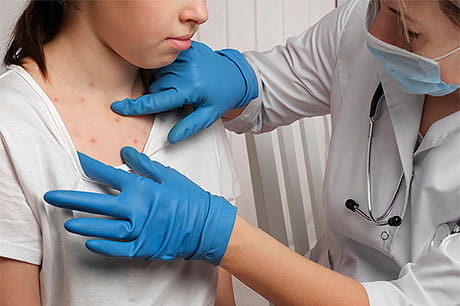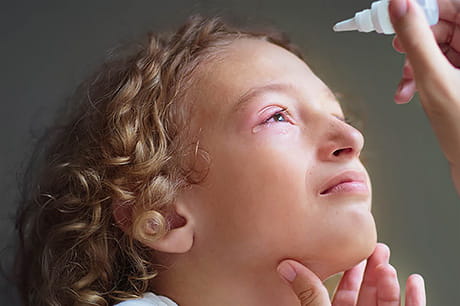Bullying in school and beyond: A guide for parents and caregivers
Whether your child is being picked on or is picking on others, you can guide them in what to do.
Juggling homework and tests, navigating friendships and figuring out who you are — it’s all part of growing up.
Another thing kids often have to deal with? Bullying and its online equivalent, cyberbullying. Learning to handle these situations is part of growing up, too.
Protect your kids by knowing how to spot the signs of bullying and when to take action, says Dr. Kathleen Noss, primary care pediatrician and Luzerne County physician site lead at Geisinger — who offers suggestions to help parents whose kids are bullying others, too.
How to spot the signs of bullying and what to do
Maintaining an open line of communication with your child about everything can make them more comfortable coming to you to talk about bullying. Still, some children feel embarrassed to say they’re being bullied. So keep an eye out for some telling behaviors.
Signs of bullying your child might have:
- Showing symptoms of depression.
- Complaining of stomach aches.
- Not wanting to go to school.
- A sudden change in eating or sleeping habits.
- Withdrawing from social activities they once enjoyed.
- Becoming moody, aggressive or appearing stressed out.
- A drastic change in technology usage. Your child may begin texting and using social media all the time — or they may stop answering texts and going on social networks altogether.
- Problems at school, like getting in trouble, skipping class, losing interest or lower grades.
Think your child is being bullied? Address the issue quickly and with plenty of compassion.
Be firm but supportive when asking your child what’s been happening and encourage them to tell you the truth, even if it’s hard. If the bully is one of their classmates, contact the school and ask them about their bullying policy. You can partner with a principal, teacher or counselor to take action.
If needed, you can also report bullying to a police officer. A family therapist can talk to you and your child about more steps you can take.
What about cyberbullying?
A couple of decades ago, bullying happened mostly outside the home and kids had an escape after school let out. Now, with social media, people can say what they want whenever they want.
Cyberbullying takes place on social media, through text messaging, other apps or the internet. It can include sending mean or inappropriate text messages, posts or pictures on social media sites or creating fake profiles or websites about a person.
Often, these bullies can act anonymously by creating fake user accounts, making it difficult for victims, their parents, teachers and even law enforcement to find them.
So, what can you do? “Talk to your child about cyberbullying and let them know that someone may post negative comments at any time,” says Dr. Noss. “Remind them that they have the power to ignore these comments and move on. But that if someone truly hurt them, they can come to you to talk about it.”
If your child is being cyberbullied, keep records of any messages, pictures or videos and contact social networks the bullying takes place on. And contact the school as well if the bully is a known classmate.
“Prevention is important. Teach your child good internet habits and monitor their internet usage,” says Dr. Noss. “Children are still learning how to act appropriately, and they should be monitored on their internet and social media usage until they’re adults.” Educate yourself about common apps kids use for social media and communication and learn how to put safeguards in place.
What if my child is the bully?
Finding out from your child’s school, or from other parents, that your child is a bully is difficult — but should always be taken seriously.
If you found out about the bullying from a school official or another parent, do your best to keep calm and try not to get defensive. Thank them for letting you know and get as many details as you can about the incidents before you talk to your child.
Then, let your child know that you heard they might be bullying another child and calmly ask for their side of the story. “And ask your child if they’ve been bullied, too,” says Dr. Noss. “Sometimes, being bullied can lead a child to bullying others.”
If your child admits to bullying another, talk through how their actions might have made the other kid feel. And encourage them to apologize for their behavior.
You can both meet with a school counselor, family doctor or pediatrician to help you get to the root of the problem and prevent bullying from happening again.
As a parent, lead by example. Show your child how you demonstrate respect and empathy toward others. Teach them to stand up for others if they see someone being bullied and to report the bullying to an adult.
“To a child, seeing another child stand up for them when they’re in a difficult situation is very powerful,” says Dr. Noss. “If they stand up for others, others will see and it’ll catch on.”
Talking through bullying with your child is a tough but important part of parenthood. Let them know that doing the right thing, being a kind person and standing up for others when they’re mistreated can really make a difference in their school and in their classmates’ lives.
Next steps:
Tips to keep your kids healthy all year long
4 ways to support your non-binary child
Learn about pediatric care at Geisinger





